| Previous: Page 4 - Midway Atoll Summary | Next: Page 6 - Battle Of Midway (Overview) |
Midway Atoll Photos
Midway Atoll was almost eight full days of sailing from LA. According to the Voyage log, it was exactly 3025 nautical miles.The nautical mile is used around the world for maritime and aviation purposes.It is commonly used in international law and treaties, especially regardingthe limits of territorial waters. It developed from the geographical mile.The earth is 21,600 nautical miles around. One nautical mile is equal to1.150779 statute miles.
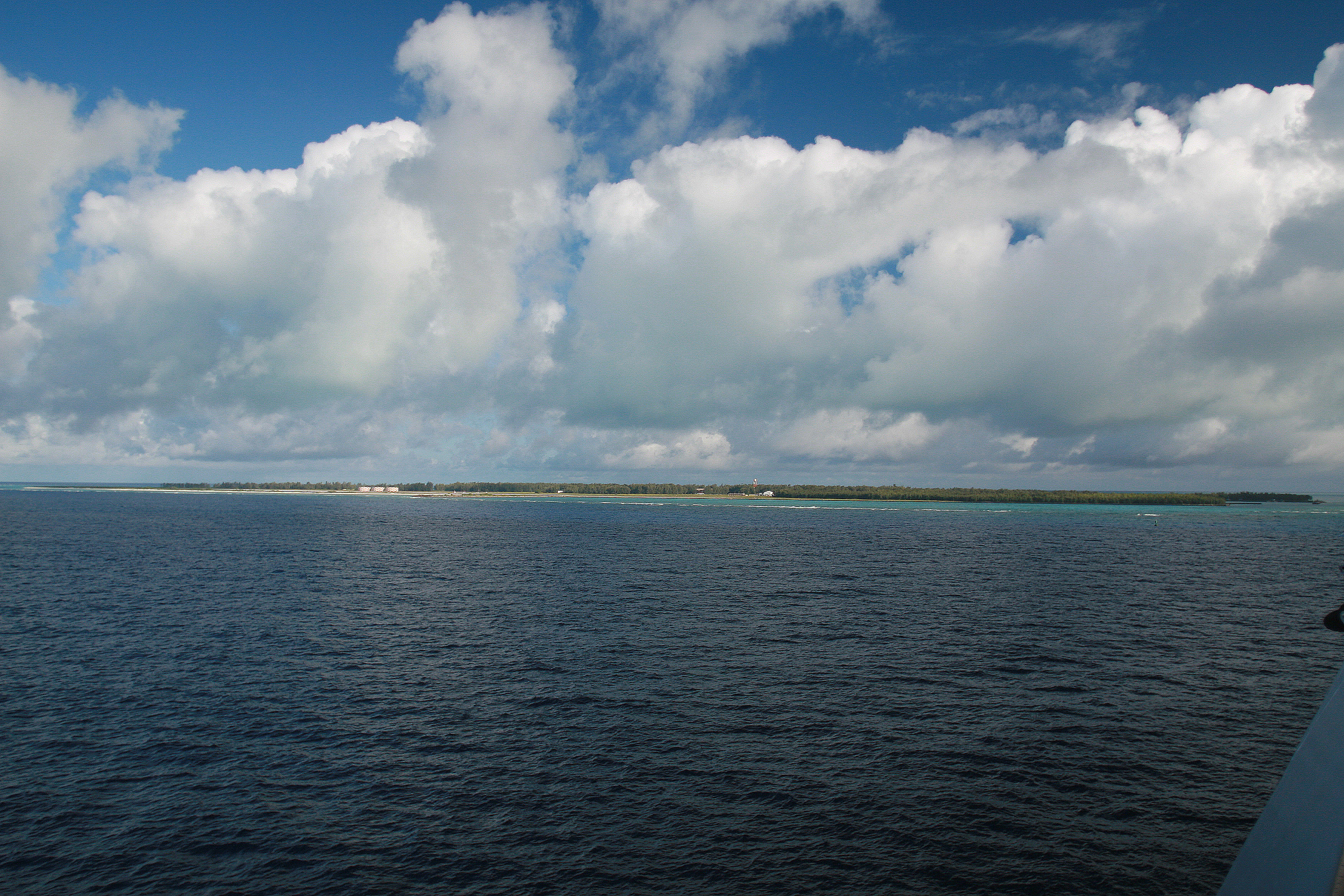
It is one flat island....
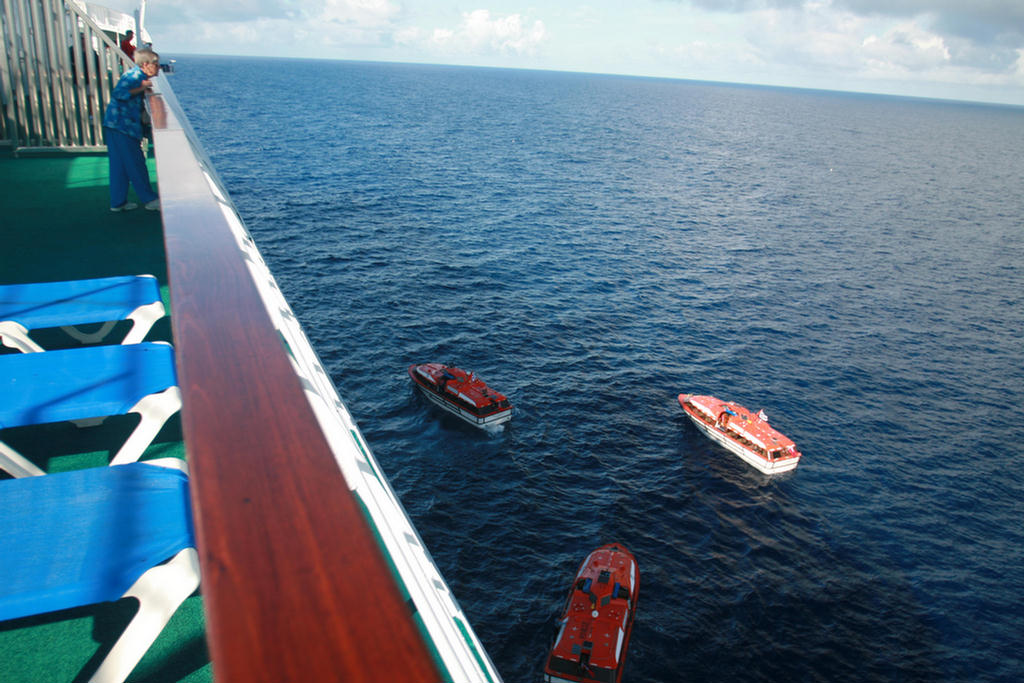
There is no port big enough so we had to use the tenders to get ashore

The sea was so very blue
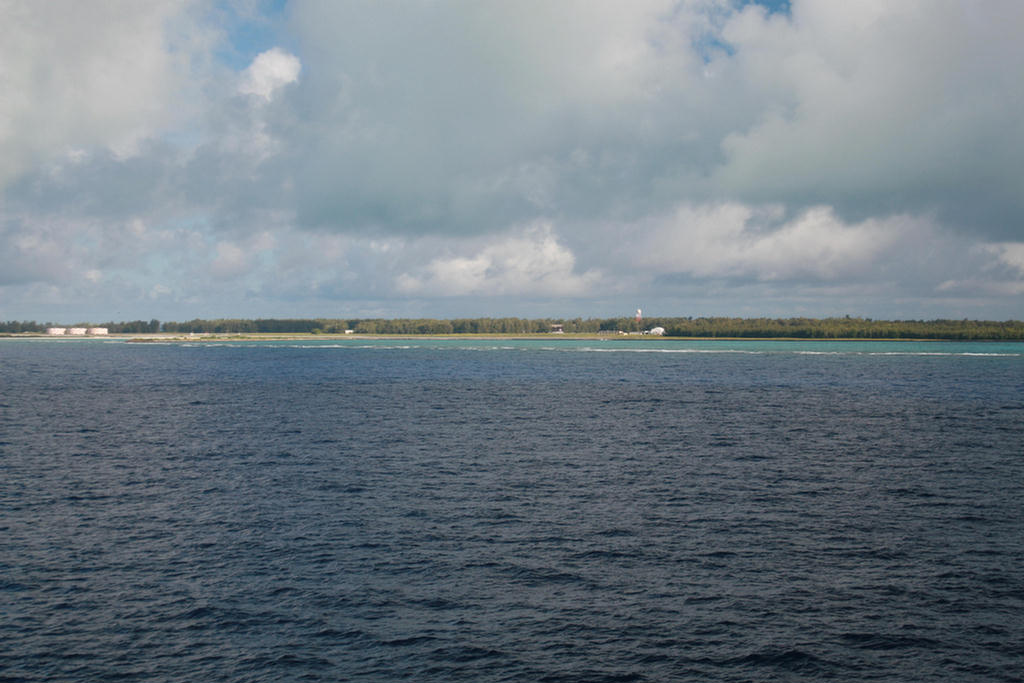
Only a few buildings on the island

On the tender the water was so very blue
On Shore Finally
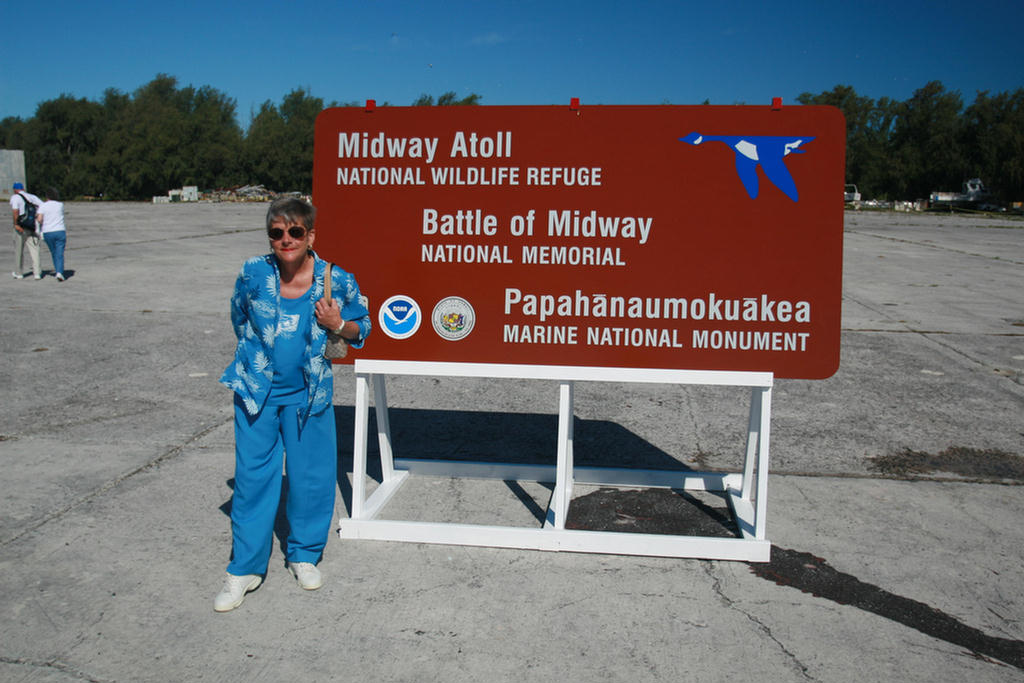
We are here
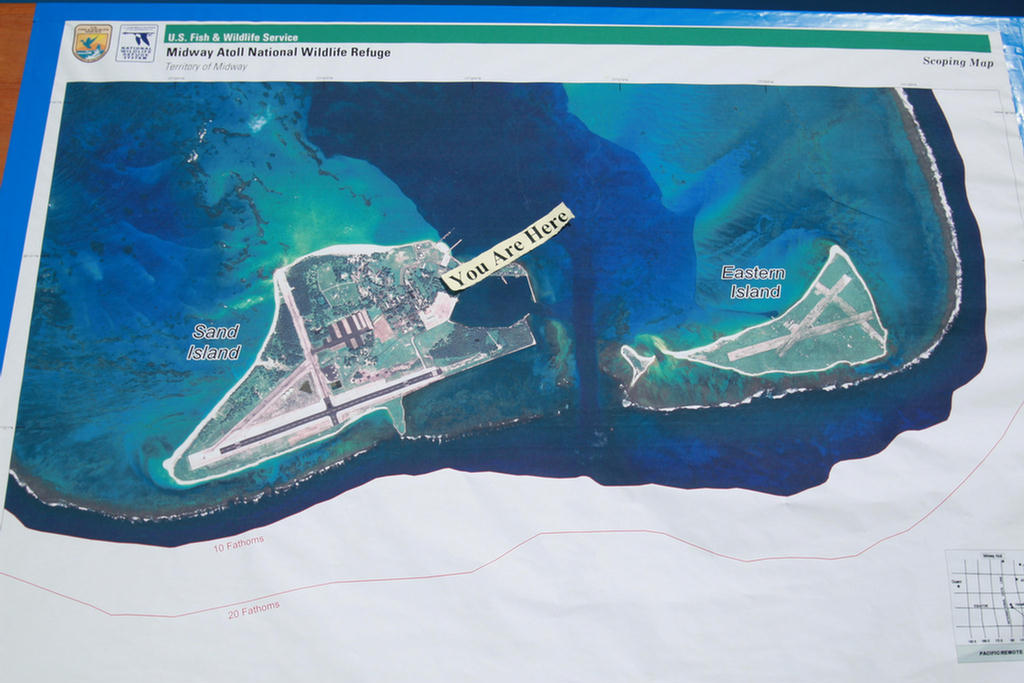
The ship anchored outside the atoll at the entrance to the islands. The tenders took us on a 20 minute jaunt from the ship, through the atollentrance into the WWII submarine pens and PBY ramp.

The PBY Hangar was hit in the initial attack

You can see the holes in the steel supports from the aircraft guns
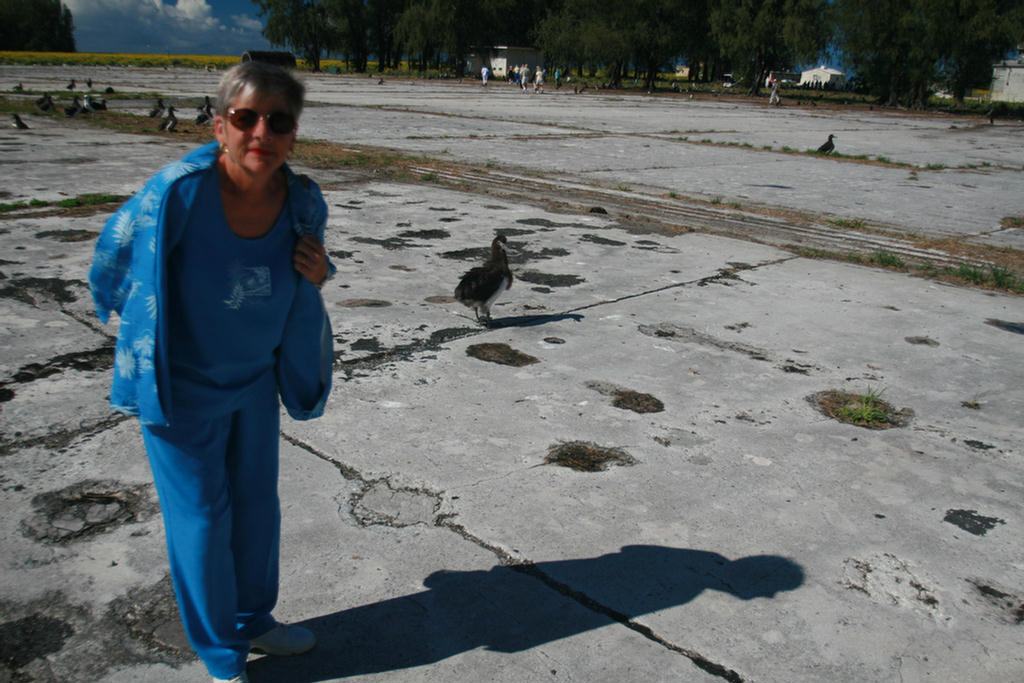
Birds were everywhere

The PBY hangar still stands although the other one was totally destroyed in the Japanese attack on Midway.
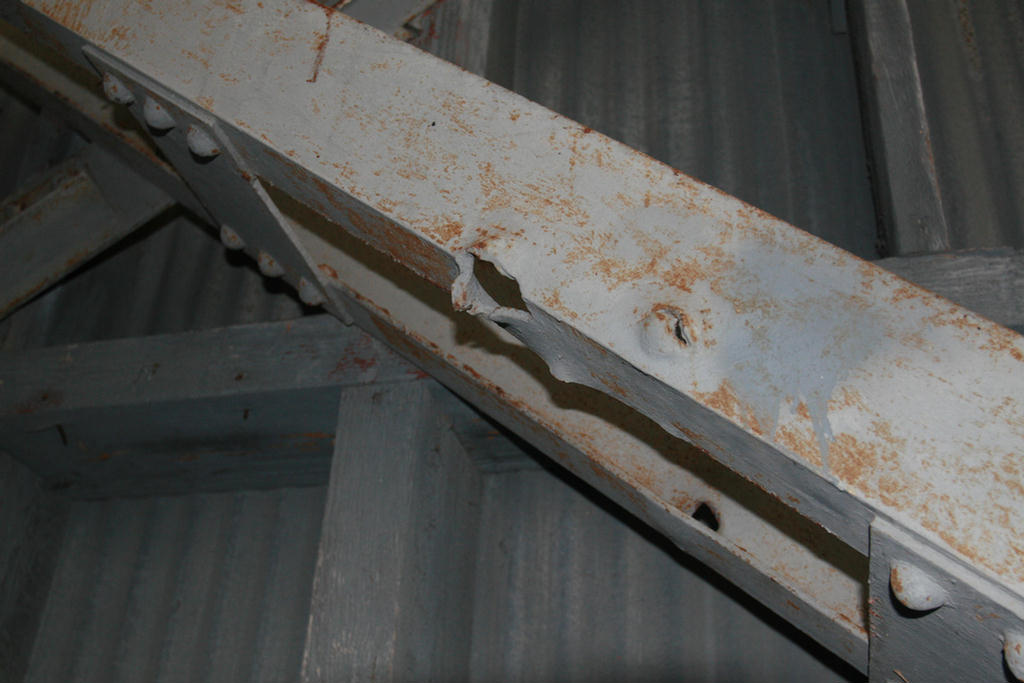
These are bullet holes form the Japanese aircraft
During the Battle of Midway, less than six months later, a Japanese pilotdropped a 500-pound bomb, hitting the same side of the hangar. The shrapnelholes in the metal beams stand as evidence of the destruction wrought uponMidway during the shelling of December 7, 1941, and the bombing of June4, 1942.

The birds were everywhere

The powerhouse was re-enforced and withstood the attack
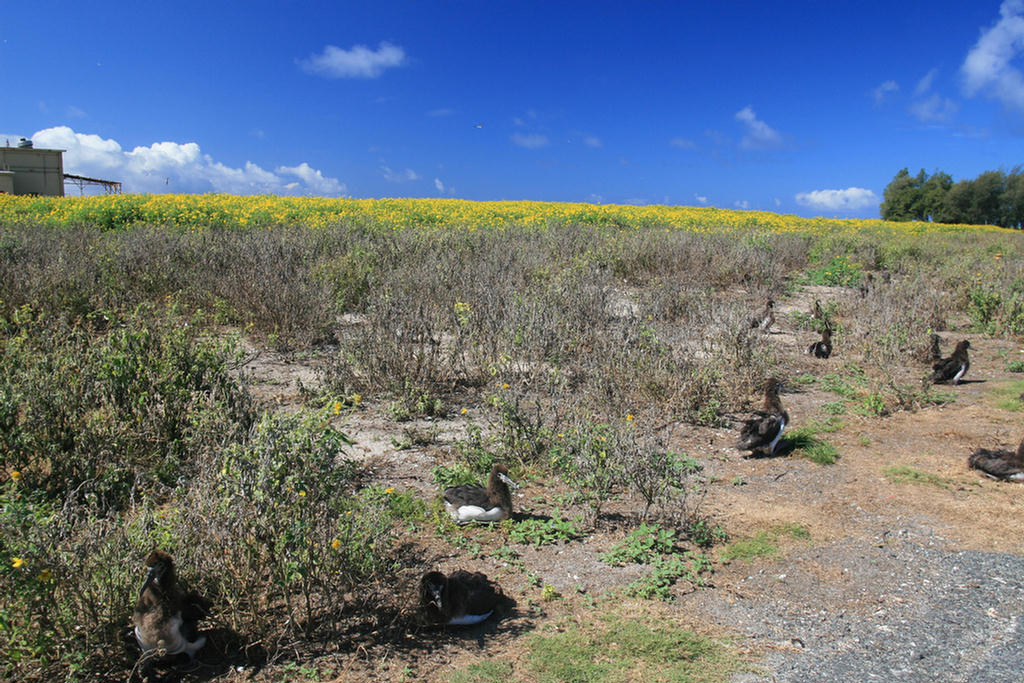
300,000 birds on the island
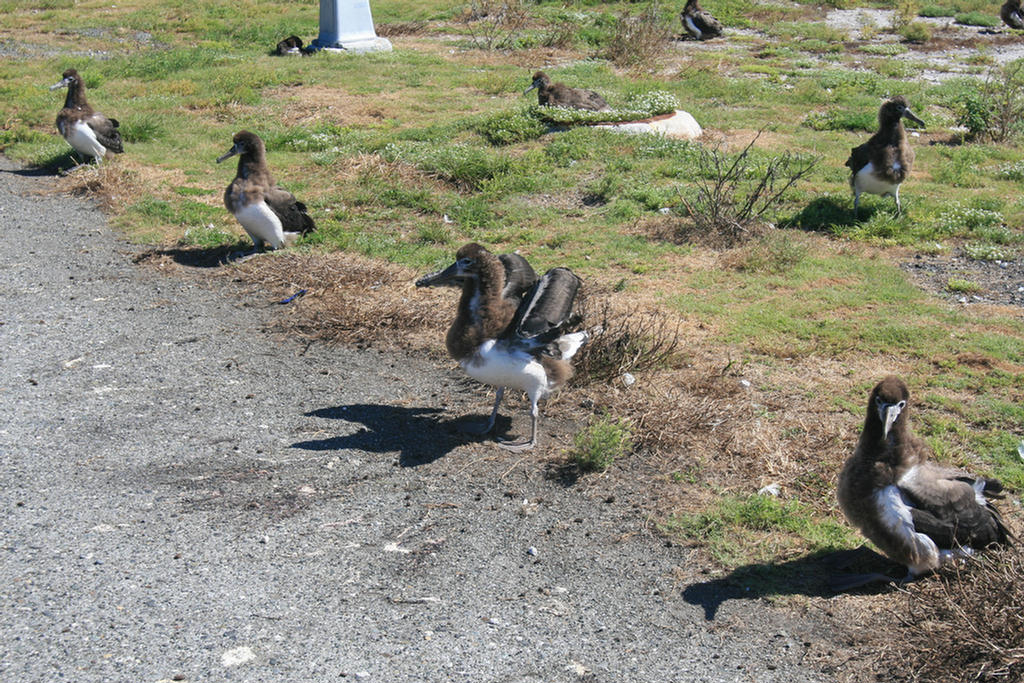
These are the babies... Their parents ot are gathering food
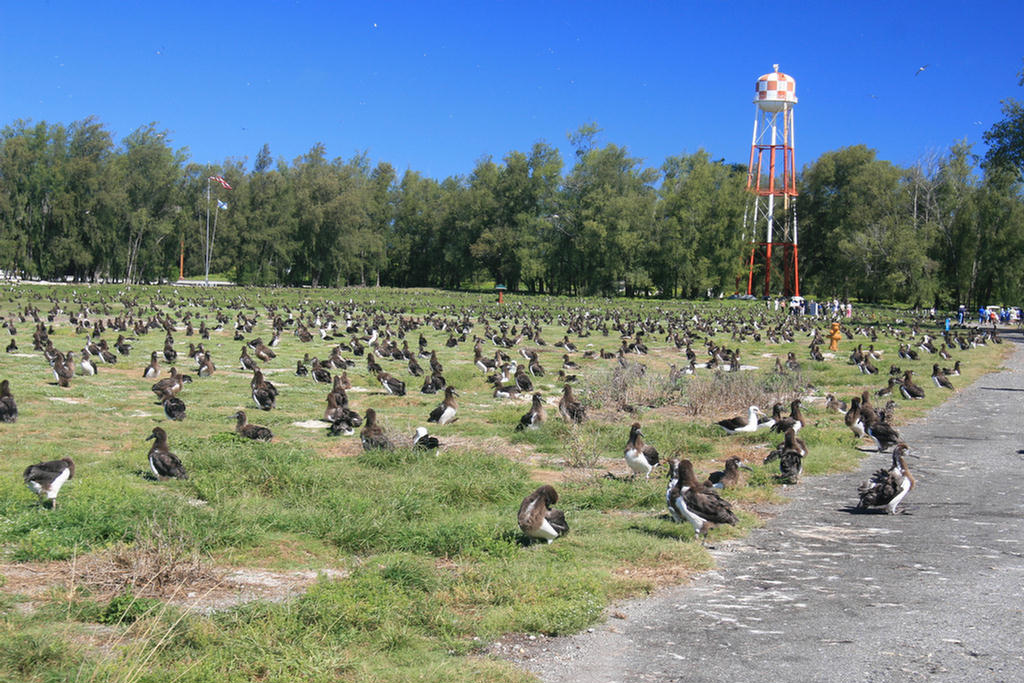
They do not move
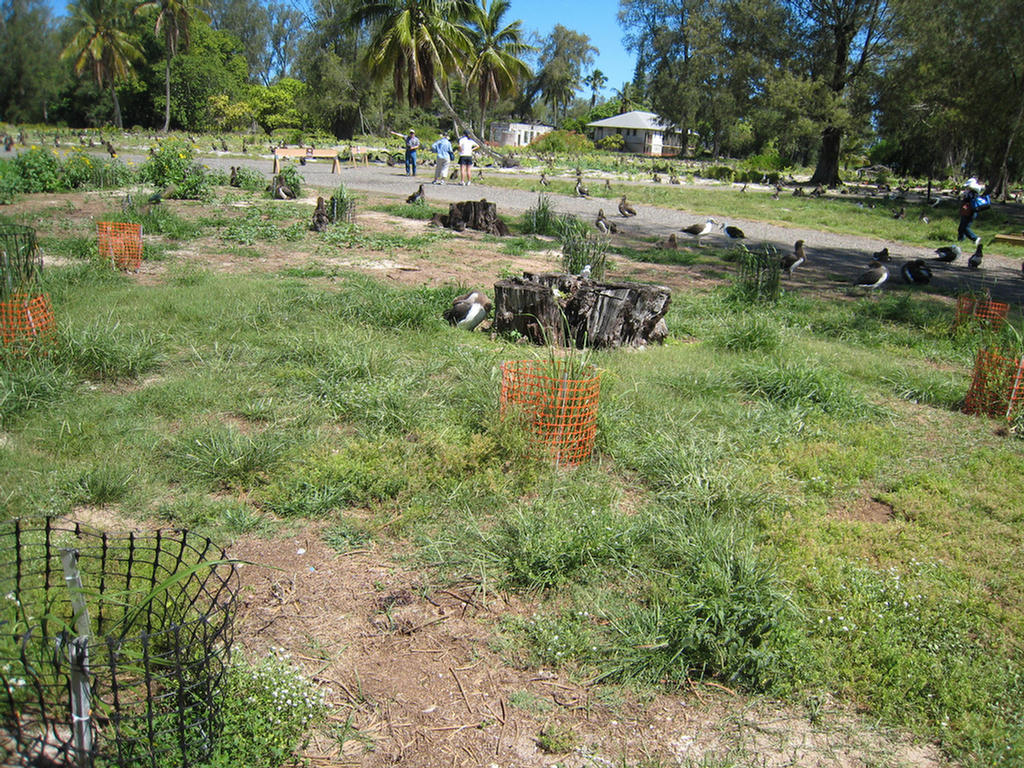
Old buidings remain

Instructions baout the birds

The water tower is stillin use

Memorials to the brave men and women on the island
Read it and weep; they were indeed heroes of the entire war!
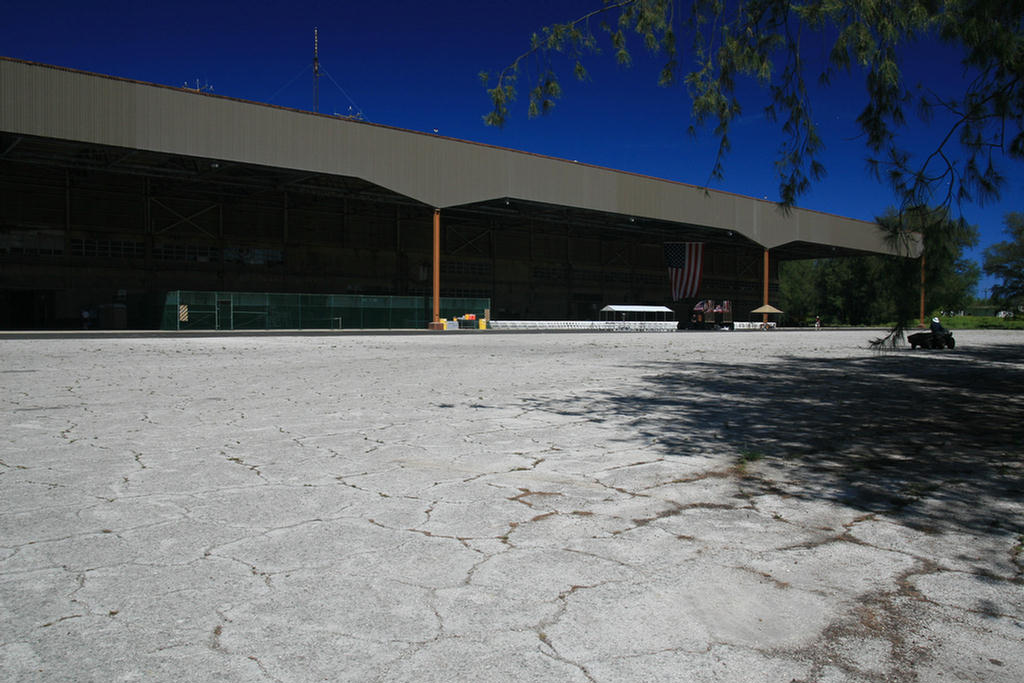
The hangar for todays aircraft

The famous sign

When most people think of Hawaii, they think about Honolulu, Waikiki Beach and Pearl Harbor (which are all on the island of Oahu); others are maybe even familiar with the neighbor islands of Kauai, Maui, Lanai, Molokai or the Big Island, the lesser visited Hawaii tourism destinations. But who has ever heard of Nihoa, Laysan, Necker, Lisianski or the Gardner Pinnacles? These and many other small islands, reefs, shoals and atolls are called the Northwestern Hawaiian Islands, or the Leeward Islands.
Spanning more than 1,200 miles (1,931 km) of the Pacific Ocean, all of them are uninhabited, little known and rarely visited (except for a few researchers do their work there). If you were to lay these islands atop the continental United States, they would cover a distance from Boston, Massachusetts, to the Florida Everglades. The Northwestern Hawaiian Islands encompass a land area of 8.0485 km² (3.1075 sq mi).

Getting ready for the 65 anniversary celebration

Sue walks amongst them
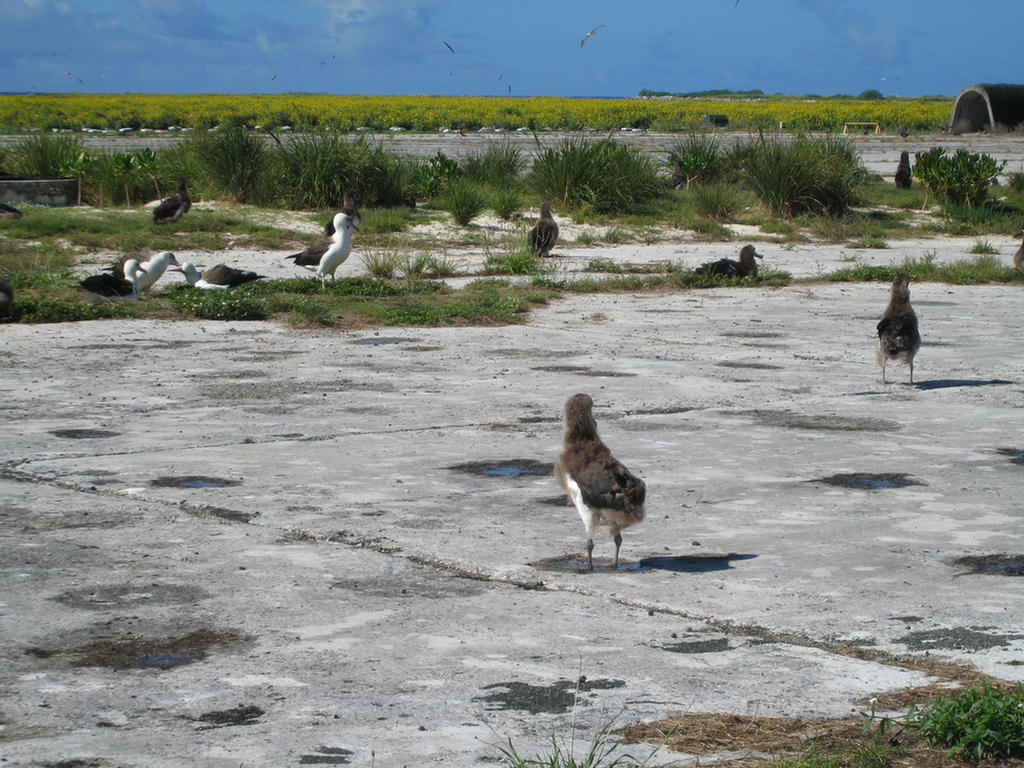
"My place"
Did You Know? - The mating dance usually begins with bill clapping between the two prospective mates. Sometimes multiple pairs will be dancing in close proximity as shown here. Other times I noticed a pair of birds dancing with a third bird hanging in close as if trying to get in on the action.

Be careful where you walk
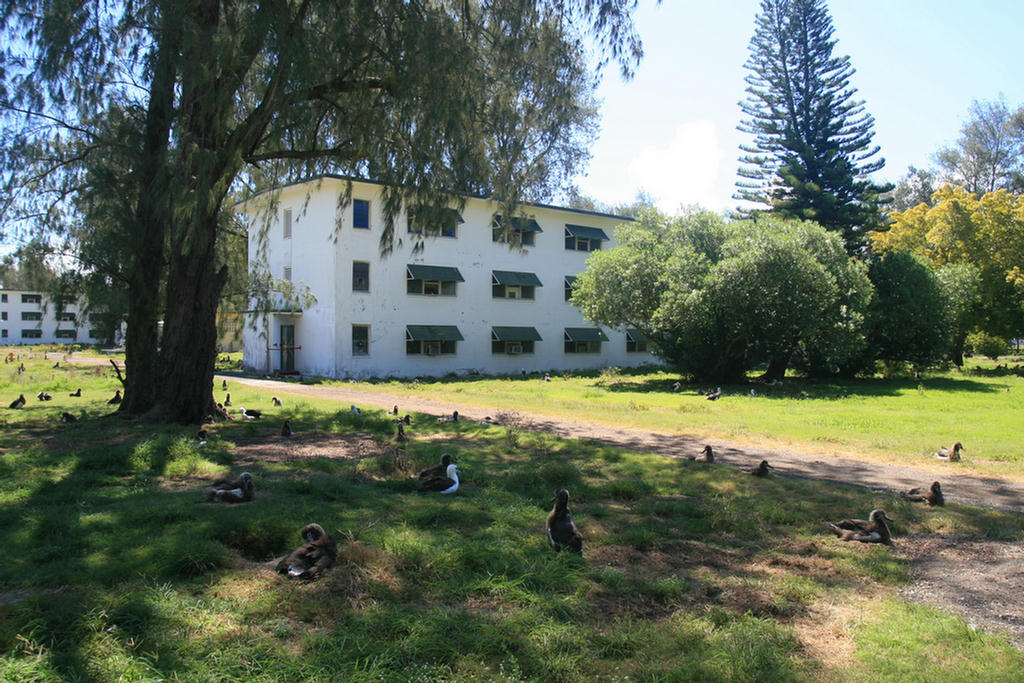
The barracks from the early days

They nest any
Did You Know? - Birds born on the island go to sea after the first year and do not return for 3-4 years. They come back as singles and spend time trying to find a lifetime mate. Albatross pairs come together each October on the island, mate and the female lays a single egg. If the egg is lost, the parents return to the sea until next year.
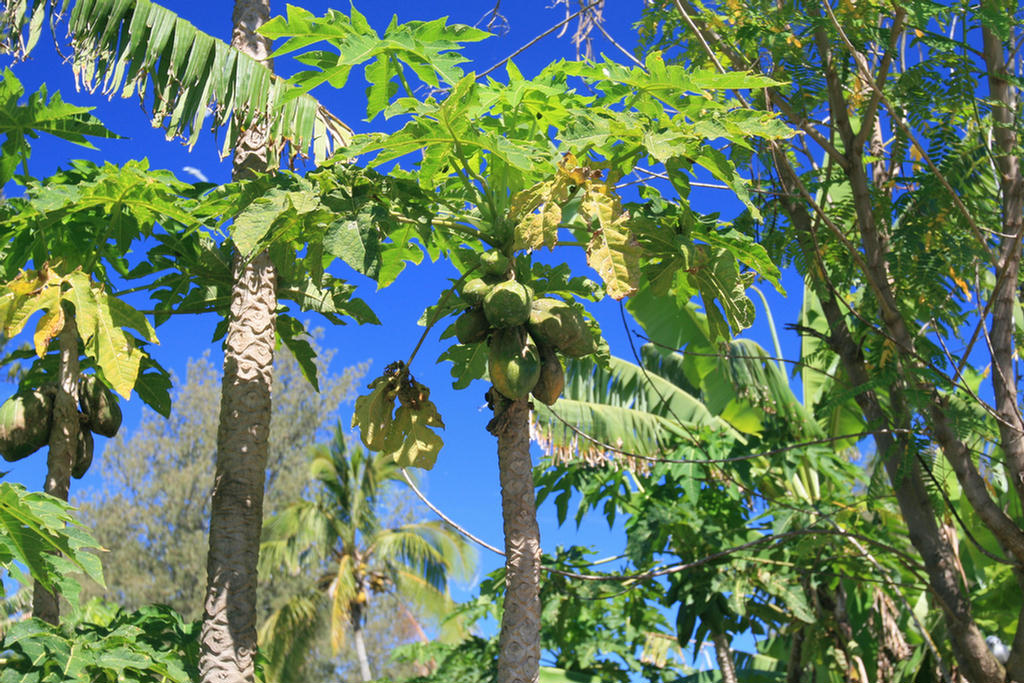
Anything will grow as long as it is tropical
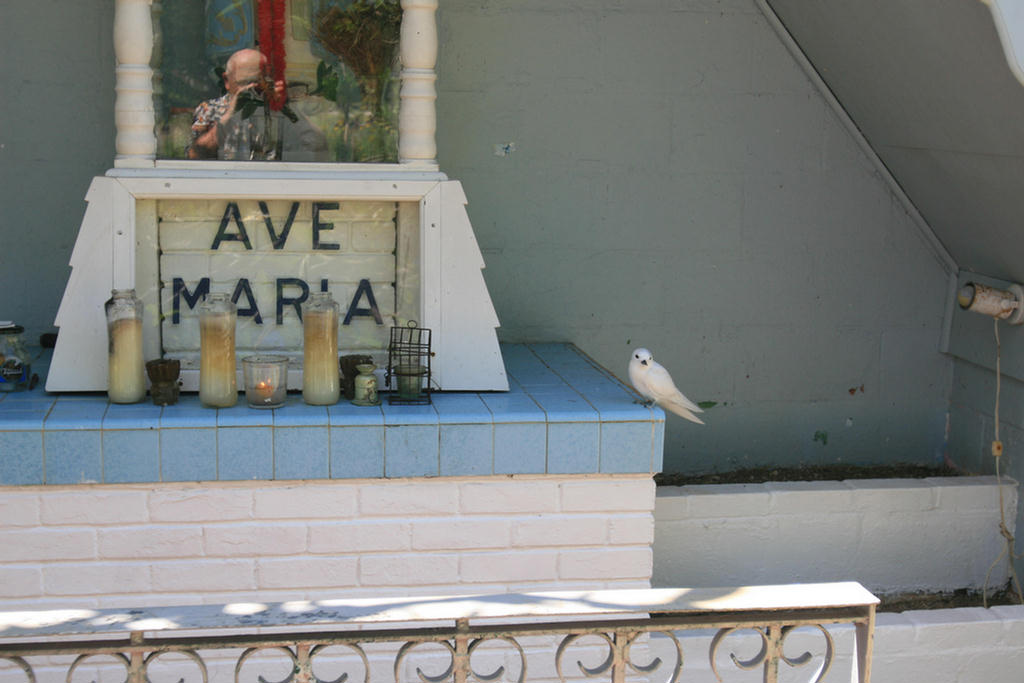
The bird was going to church... See Paul in the mirror???
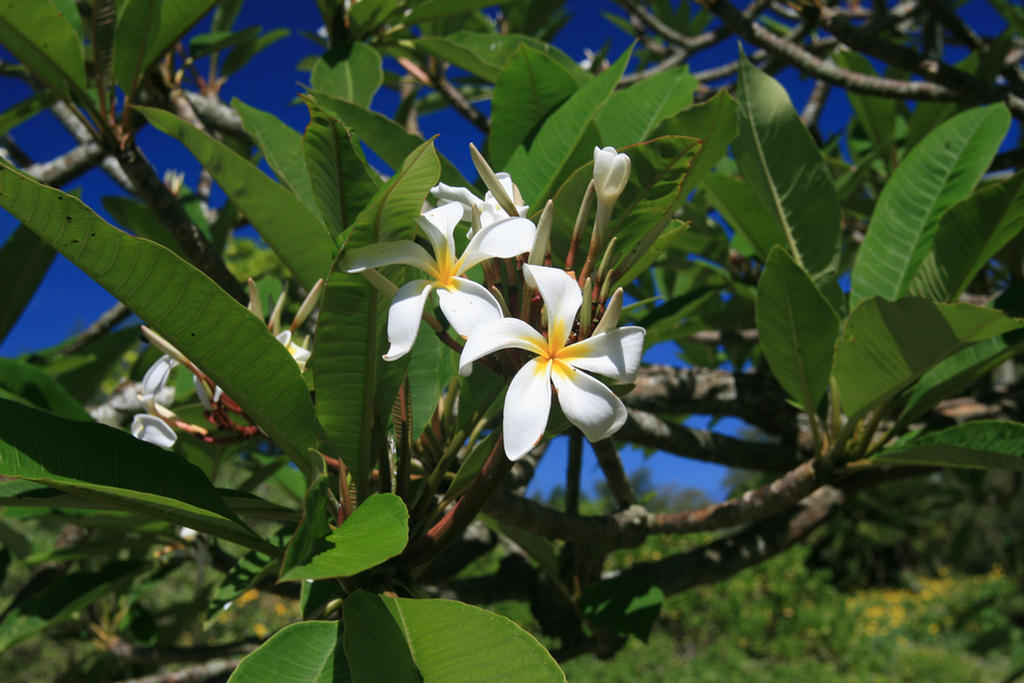
Pameria everywhere

Sue liked the garden

They were not kidding....
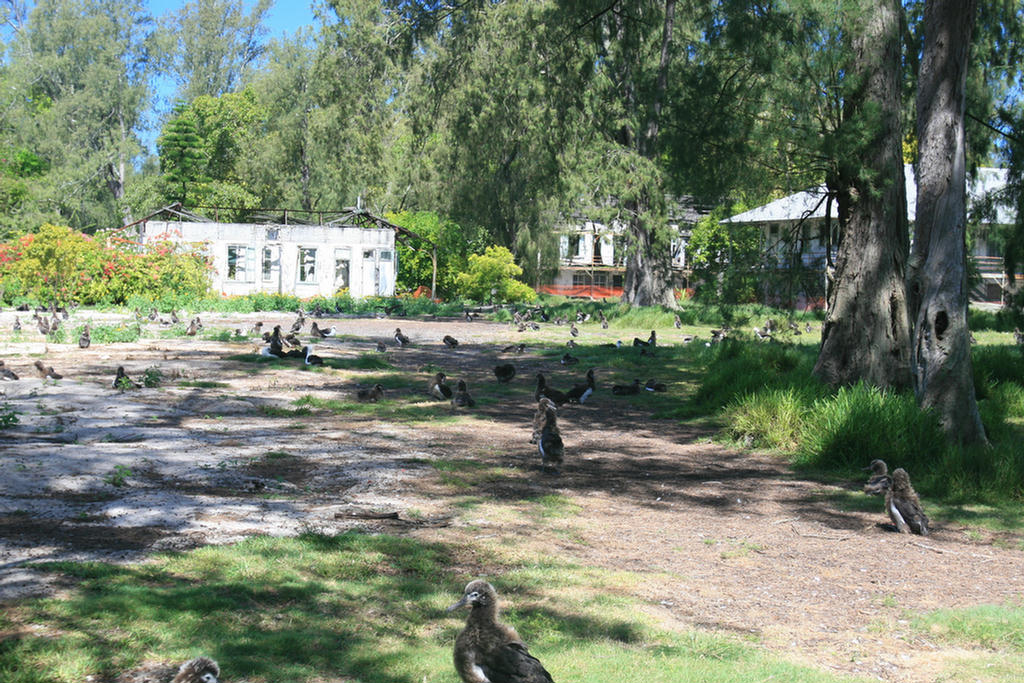
Every square foot of the island was covered
To The Beach...
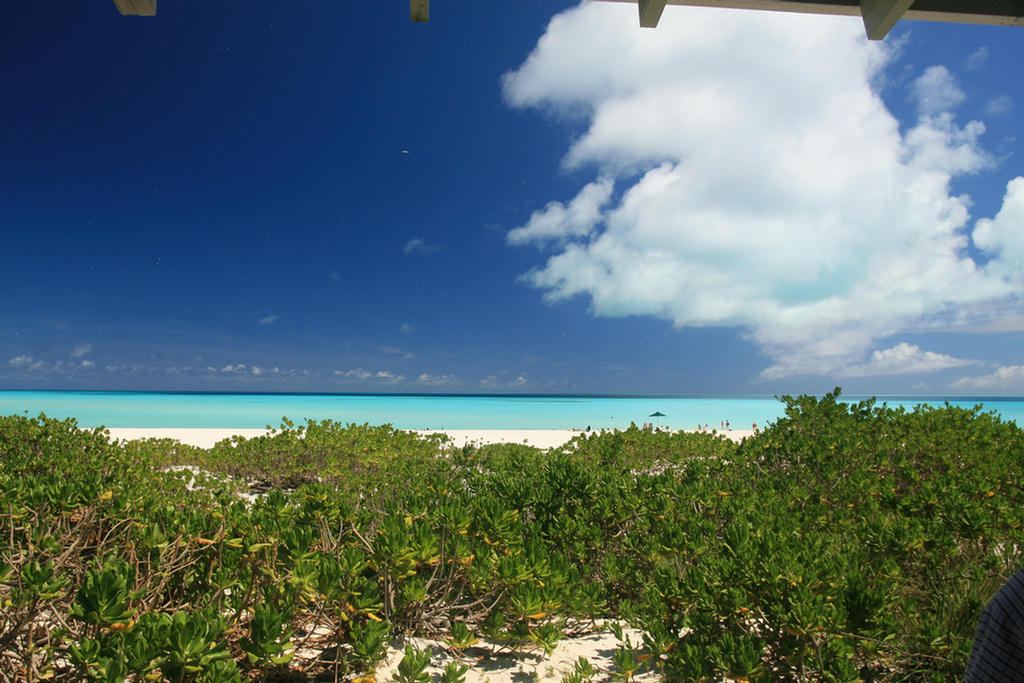
Is was beautiful

Just beautiful
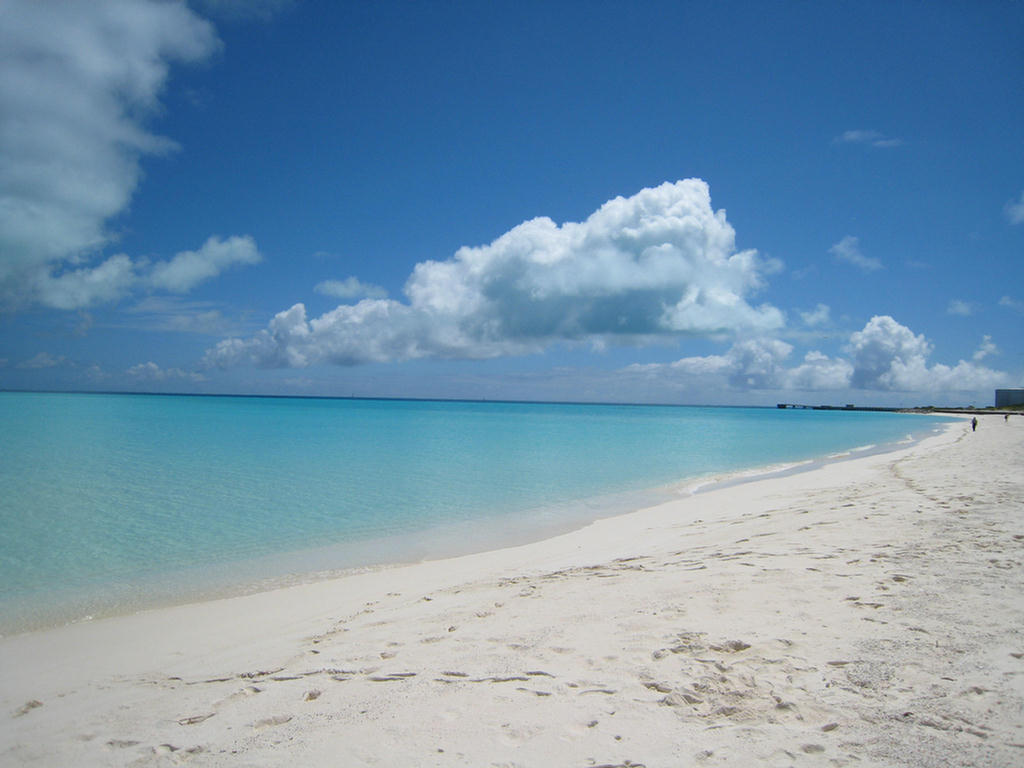
Here comes some clouds and probably rain

The water was warm
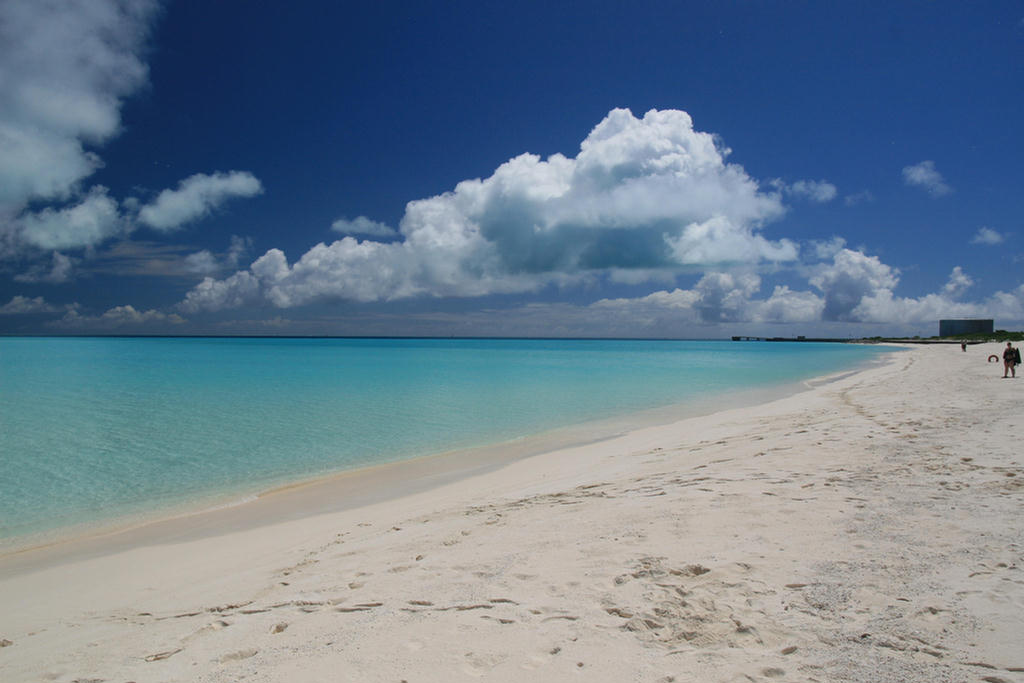
The tracks will be gone in the morning


New building

Some of these are occupied today

OMG... Look at the birds
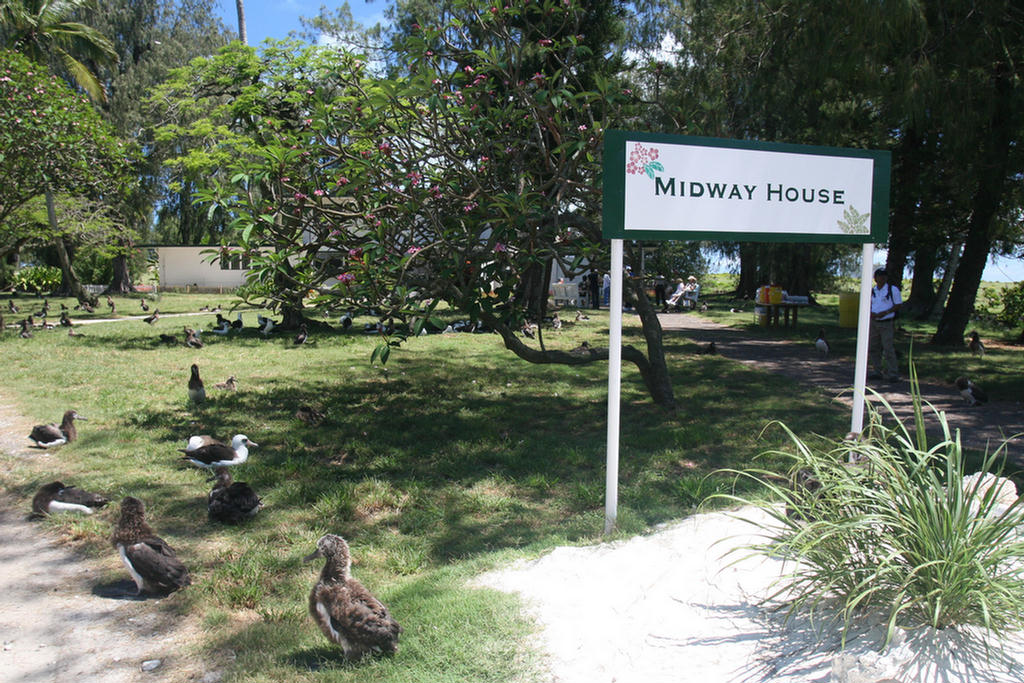
Did You Know? - With about 3,500 people living on Sand Island, Midway also supported the U.S. troops during the Vietnam War. In June 1969, President Richard Nixon held a secret meeting with South Vietnamese President Nguyen Van Thieu at the Officer-in-Charge house or "Midway House".
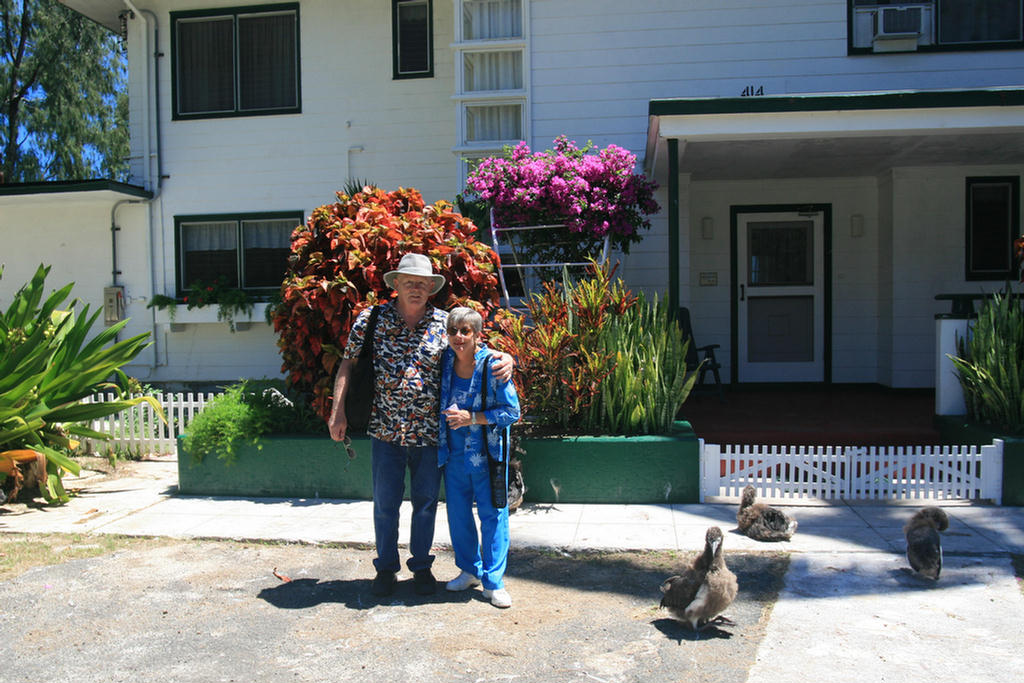
The birds wanted to come into the house

AJ and his bird legs attrached some of the little birdsd
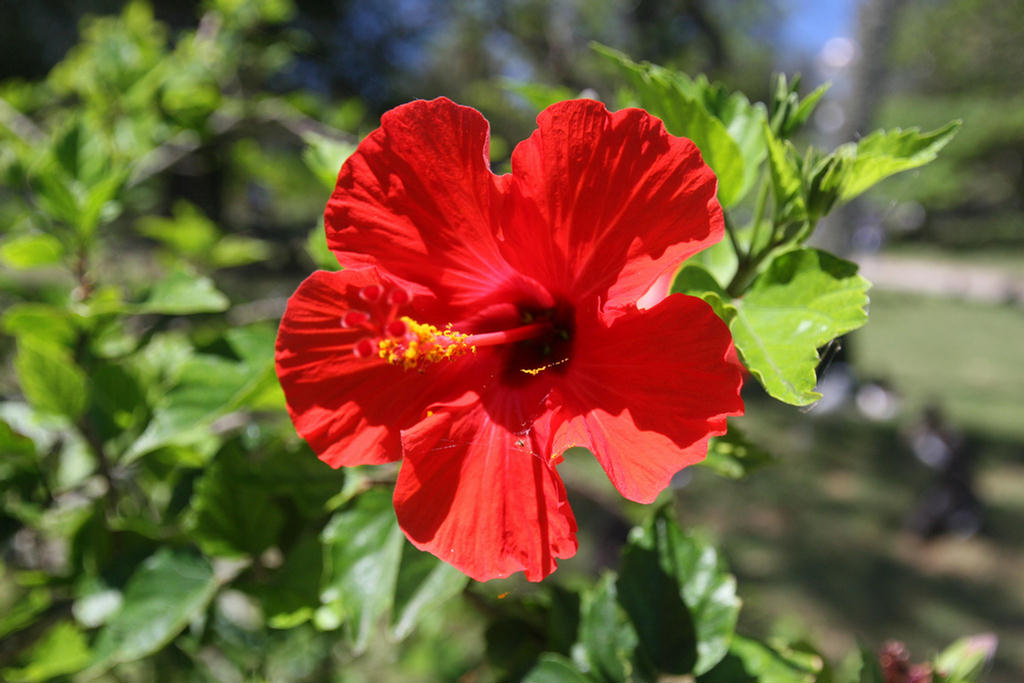
The flowers were magnificent
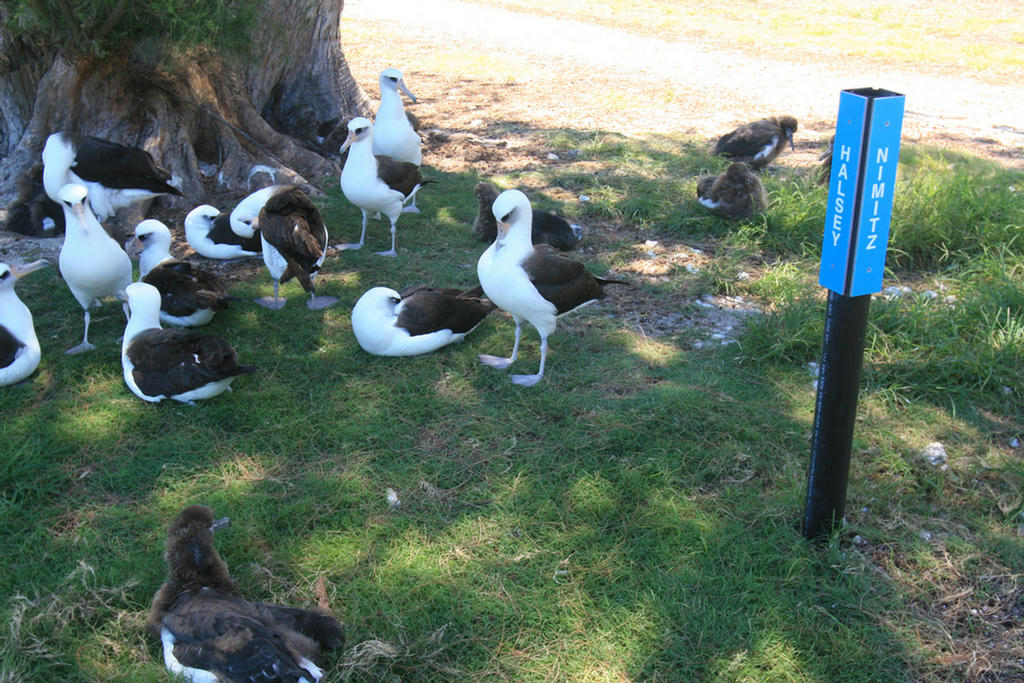
The streets were appropriately named

How our troops saw the movies.... Bob Hope and other USO folks entertained in this building

Midway Mall... Amazing


An original gun emplacement
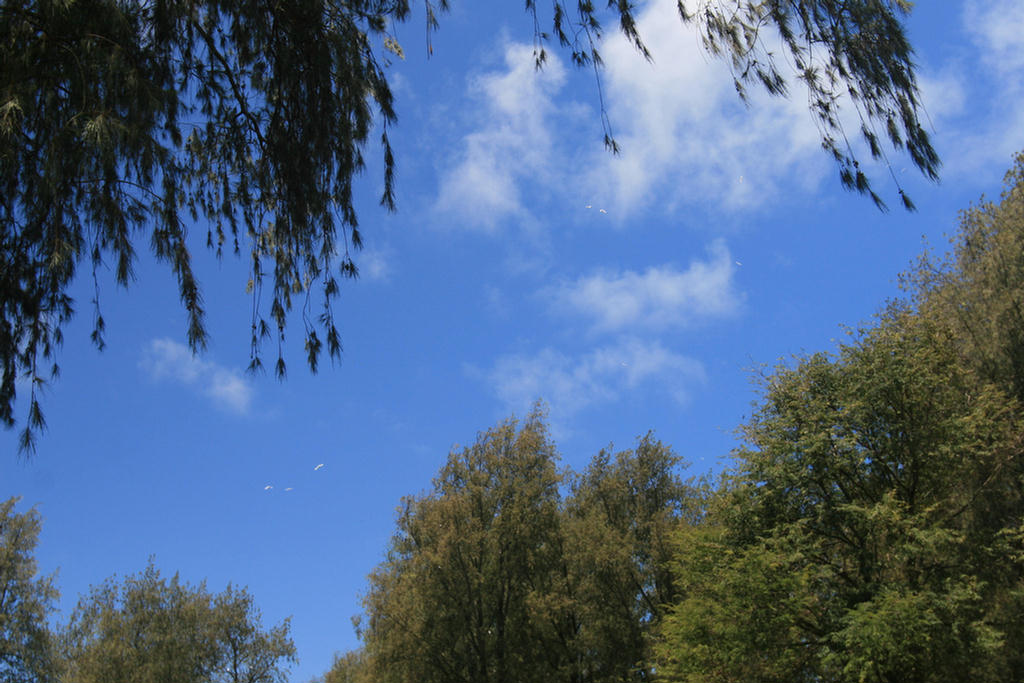
Beautiful skies everywhere

Paul on the airfield

Handsome devil he is
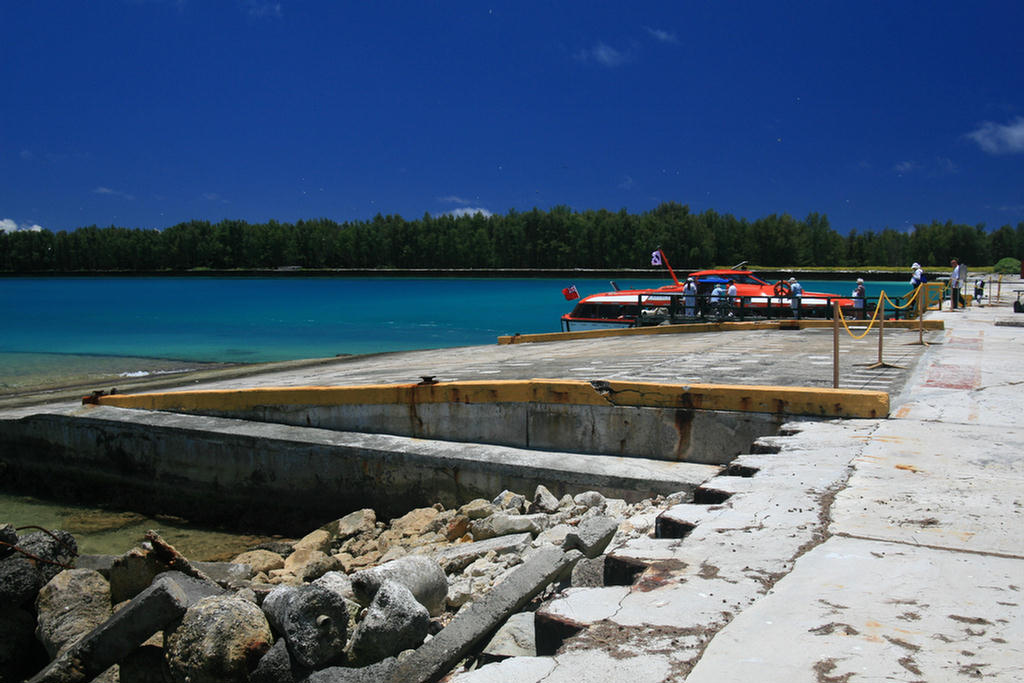
The ramp for the PBY to enter the water
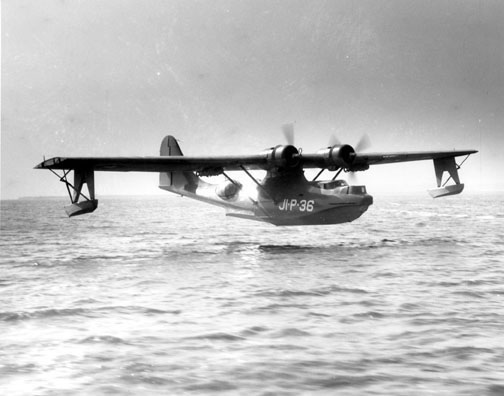
Wheels down and roll right up
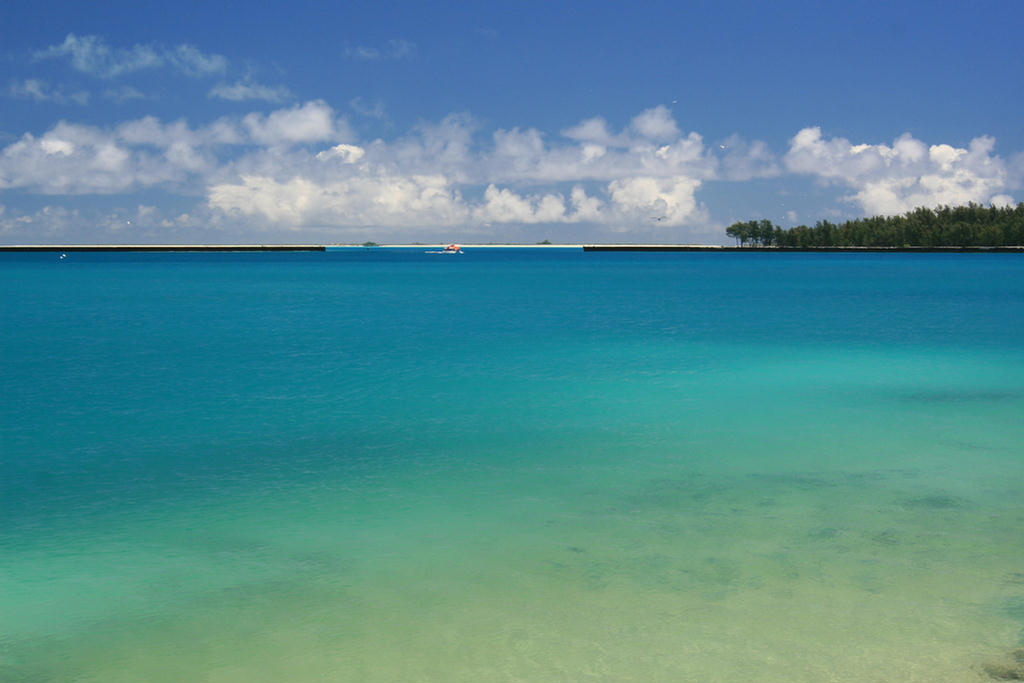
Amazing colors

Submarine base docks
Did You Know? - Just before the Battle of the Coral Sea, ADM Nimitz had appointed RADM Robert English to succeed RADM Withers as COMSUBPAC. English promptly concluded an agreement with CAPT Wilkes to exchange submarines between their two bases so that Fremantle's boats could be cycled back to the United States for overhaul. Moreover, in transiting to Australia, the Pearl Harbor submarines could undertake war patrols off the Japanese-held islands. Under this arrangement – and with new arrivals from the United States – the number of war patrols from Pearl Harbor increased sharply during April and early May 1942, evenly divided between "Empire" forays and "stake-outs" of the Japanese bases in the Central Pacific.
All told, however, between January and May 1942, the Pearl Harbor boats were eventually credited with sinking only 33 enemy ships – approximately 130,000 tons – almost all on patrols to Japanese home waters and the East China Sea.
Then, in mid-May, "ULTRA" crypto- graphic intelligence provided advance warning of a major Japanese offensive intended to seize first the Aleutians, and then Midway Island, only 700 miles from Pearl Harbor. ADM Nimitz immediately deployed his three remaining aircraft carriers to intercept the multi-pronged enemy attack, and the result was the U.S. victory in the Battle of Midway, 4-6 June 1942, often described as the "turning point" of the Pacific war. As a key element of the riposte, RADM English had sortied all his available submarines and deployed them in two groups: 12 boats west of Midway and seven to the west and north of Oahu.
Simultaneously, the Japanese assigned 16 submarines to support their invasion force, but U.S. ULTRA intercepts and radio-direction-finding (RDF) kept them at bay. Unfortunately, the American submarines did no better. Confusion, indecision, and poor contact reporting limited them to making only negligible contributions to the U.S. victory. Four Japanese carriers and a heavy cruiser were lost to U.S. aircraft, but of the submarines, only USS Nautilus (SS-168) managed to score a hit – on the already-damaged carrier, IJS Kaga – and her torpedo was a dud.
In contrast, a Japanese submarine, I-168, got within range of the crippled aircraft carrier, USS Yorktown (CV-5), and sank both her and an escorting destroyer before the former could be taken under tow for Pearl Harbor.
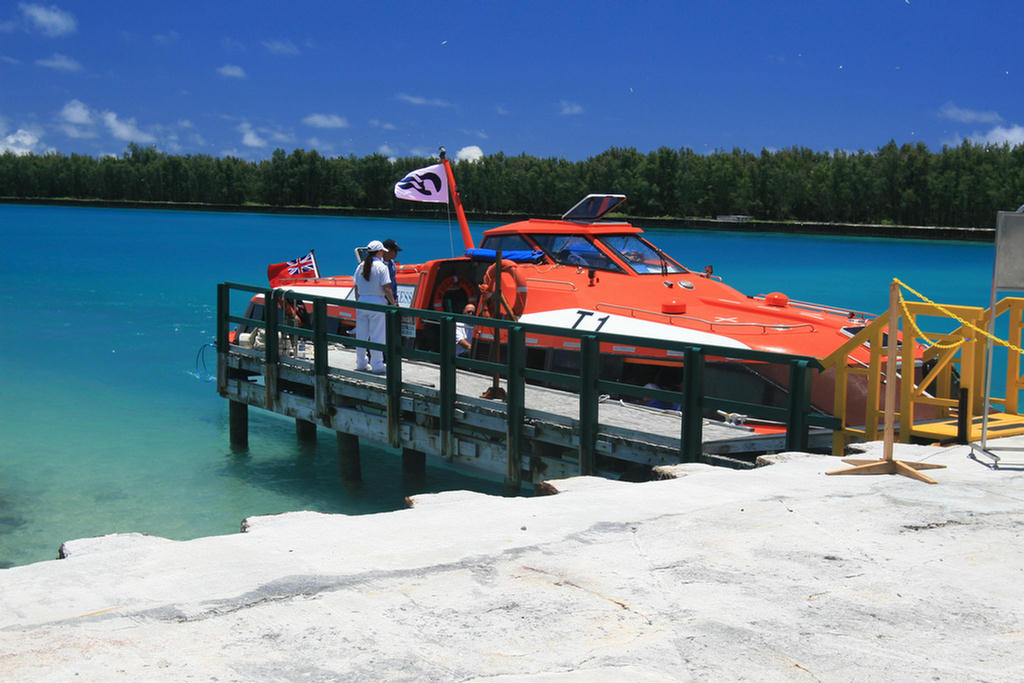
Our tender is ready
Did You Know? - A ship's tender, usually referred to as a tender, is a boat, or a larger ship used to service a ship, generally by transporting people and/or supplies to and from shore or another ship. Smaller boats may also have tenders, usually called dinghies.
For a variety of reasons, it is not always advisable to try to tie a ship up at a dock; the weather or the sea might be rough, the time might be short, or the ship too large to fit. In such cases tenders provide the link from ship to shore, and may have a very busy schedule of back-and-forth trips while the ship is in port.
On cruise ships, lifeboat tenders do double duty, serving as tenders in day-to-day activities, but fully equipped to act as lifeboats in an emergency. They are generally carried on davits just above the promenade deck, and may at first glance appear to be regular lifeboats; but they are usually larger and better-equipped. Current lifeboat tender designs favor catamaran models, since they are less likely to roll in the calm to moderate conditions in which tenders are usually used. They typically carry up to 100 to 150 passengers and two to three crew members.
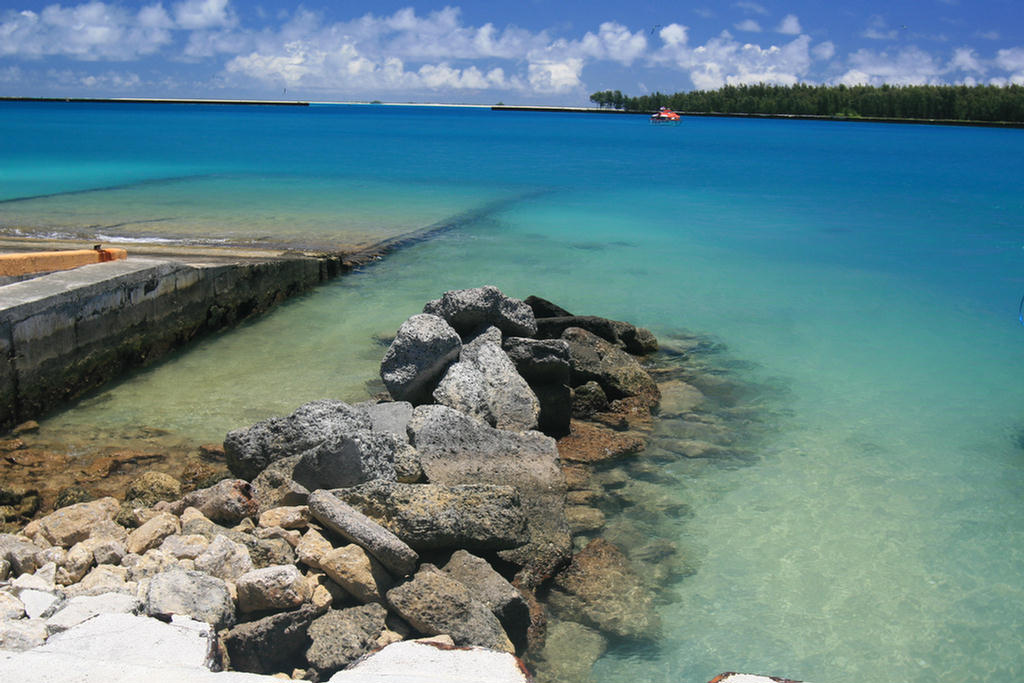
The PBY ramp went right into the ocean
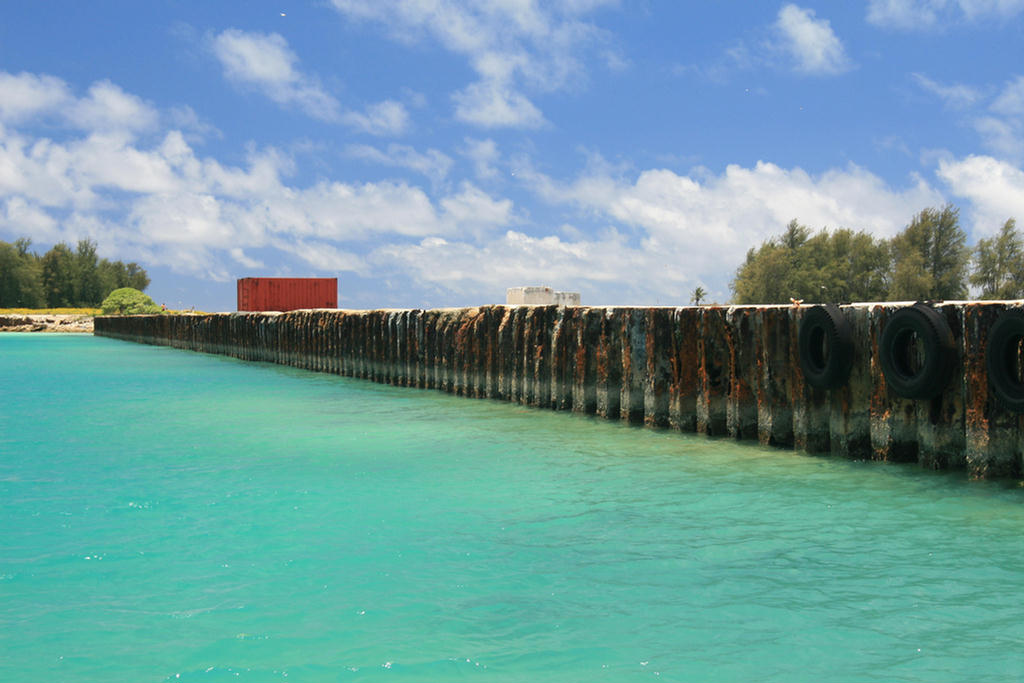
Submarines tied up right here
Did You Know? - The U.S. did consider Midway vital; after the battle, establishment of a U.S. submarine base on Midway allowed submarines operating from Pearl Harbor to refuel and reprovision, extending their radius of operations by 1,200 mi (1,900 km). An airstrip on Midway served as a forward staging point for bomber attacks on Wake Island.

The breakwater was man-made
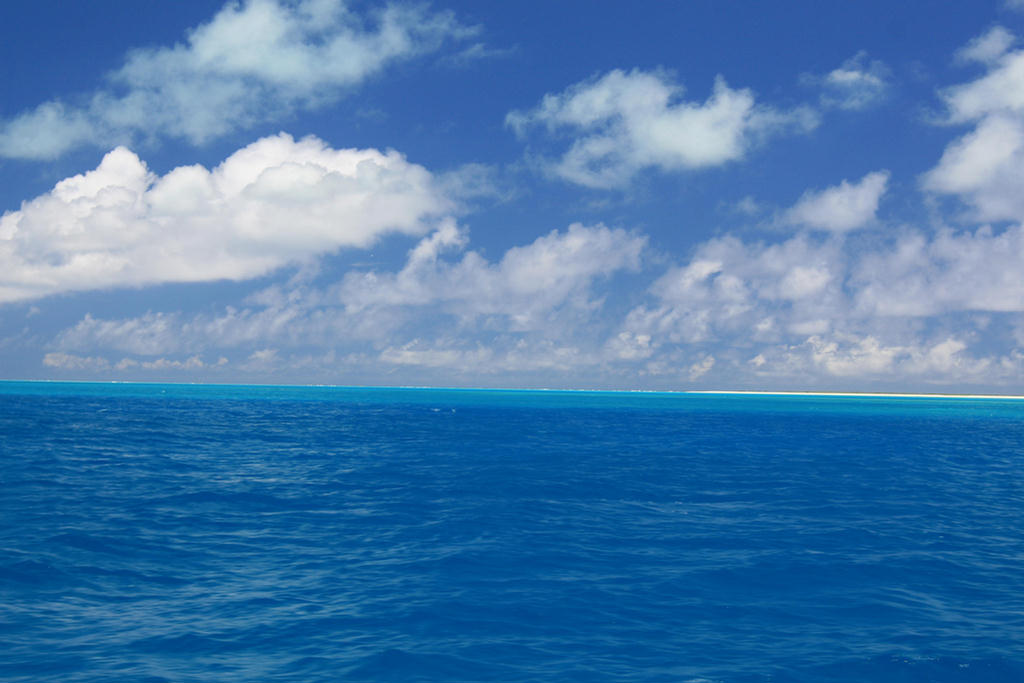
Amazing colors
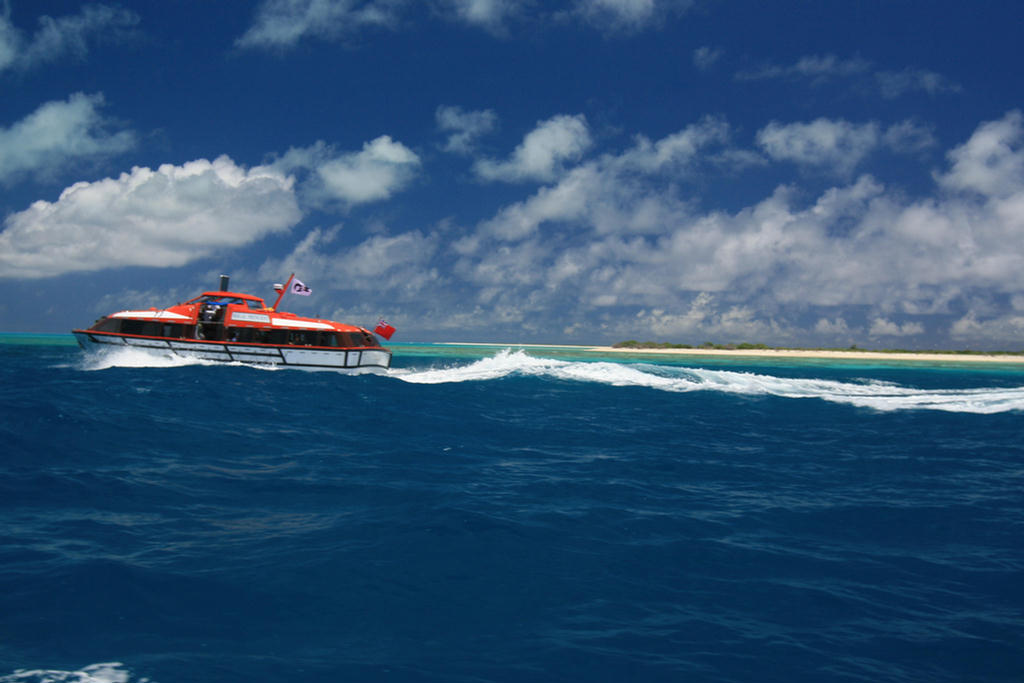
This tender was heading back to the ship

The remains of a pier

The blues were magnificent

The tenders really bounced around

We were about htree miles off the shore
| Previous: Page 4 - Midway Atoll Summary | Next: Page 6 - Battle Of Midway (Overview) |
